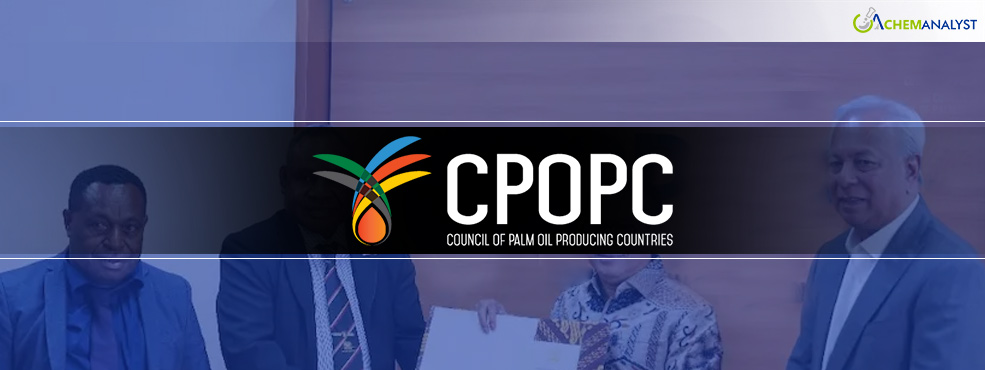Welcome To ChemAnalyst

Papua New Guinea has officially joined the Council of Palm Oil Producing Countries (CPOPC) as its fourth member, marking a significant milestone for the organization and the global palm oil industry. The formal announcement came during a hybrid ceremony held at the council's secretariat in Jakarta, Indonesia, symbolizing the culmination of Papua New Guinea's accession process, which began with the submission of its application on October 27, 2020. Representing the nation at this event were Gregory Hombuahin, Minister Counsellor of Papua New Guinea’s embassy in Jakarta, and Kepson Pupita, General-Secretary of the Oil Palm Industry Corporation of Papua New Guinea.
Dr. Rizal Affandi Lukman, the Secretary-General of CPOPC, welcomed Papua New Guinea, emphasizing the country's rich experience in palm oil cultivation and its dedication to fostering economic development. According to Dr. Rizal, the inclusion of Papua New Guinea strengthens the council’s mission to unify palm oil-producing nations and advocate for sustainable practices in the industry. “Today's accession is a testament to the unifying vision of CPOPC. Together, we can amplify our collective voice on the global stage, promoting equitable and sustainable development in the palm oil sector,” he stated.
Hombuahin expressed Papua New Guinea’s enthusiasm for joining CPOPC, underscoring the alignment between the council’s values and the country’s commitment to sustainability and community-centered growth. “We are committed to working together with our fellow members to build a brighter future for the oil palm industry,” he remarked. The addition of Papua New Guinea is expected to bring fresh perspectives and strengthen collaborative efforts to address global challenges in the palm oil sector.
As a member of CPOPC, Papua New Guinea will have the privilege to actively participate in the council’s Ministerial and Senior Officials Meetings. These gatherings serve as crucial platforms for shaping policies, approving strategies, and developing programs that support the sustainable growth of the oil palm industry. The council noted that Papua New Guinea’s involvement will enhance its capacity to influence key industry decisions while advancing shared objectives among member countries.
CPOPC highlighted that with Papua New Guinea’s inclusion, alongside observer countries Nigeria and the Democratic Republic of Congo, the council now oversees 88.8% of the world’s palm oil production. This expanded representation solidifies CPOPC’s role as a pivotal player in the global palm oil industry, advocating for equitable and sustainable development.
Established in 2015, CPOPC was created to advance the collective interests of palm oil-producing nations and foster international cooperation. The council prioritizes promoting sustainable practices and ensuring the long-term economic benefits of palm oil cultivation. By working together, member countries aim to shape the future of the palm oil industry, balancing economic growth with environmental and social responsibilities. With the addition of Papua New Guinea, CPOPC is better positioned to lead the global effort toward a more sustainable and inclusive palm oil sector.
We use cookies to deliver the best possible experience on our website. To learn more, visit our Privacy Policy. By continuing to use this site or by closing this box, you consent to our use of cookies. More info.
